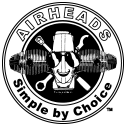Loud noises upon clutch engagement
What could the source of this terrible noise be?
After a nearly total rebuild of my '72 R75/5 (engine top end, carb rebuild, timing chain, all new seals, clutch plate, new alternator, coils, etc) the engine started up and is running nicely. So nice to hear a smooth airhead purr without timing chain clatter. BUT upon first attempt at engaging the xm and slowly (thankfully) releasing the clutch in 1st gear for a test ride in the driveway, I got a terrible loud metallic clunking/banging, like gears clashing, from somewhere in the drive train. Thinking it might be something unique to 1st gear, I tried 2nd gear and got the same thing. No noises in neutral or with clutch pulled in. At bike rebuild I did nothing to xm or rear bevel drive other than remove and re-install, and neither xm nor rear bevel drive exhibited any issues prior to rebuild. Following some kind of logic, I'm thinking it has to be something I did touch or change. I was careful to keep the crankshaft secured rearward when removing - through reinstallation - of the flywheel. At this point, all I can think of is severe clutch grabbing/chatter sending vibrations / shock through the drivetrain. I replaced only the clutch plate - not the spring, pressure plate or compression plate as although they showed wear they were within spec dimensionally.
Any ideas or suggestions of where I should look, what the issue may be, or how to proceed? Is it possible that my clutch situation could be causing this kind of a drivetrain noise?
Curious - did the bike try to move in 1st or 2nd? Or, just make alarming noises? Don’t know exactly what was apart where, but the driveshaft is re-bolted to the transmission output flange, right? Dumb question, I know.
Yes, the bike did want to move with the clutch being engaged and the clunking. Afterwards, I did check the 4 stretch bolts holding the drive shaft to the xm output flange, and all was well. I also removed the rear wheel to check the spline driving the rear wheel and that looked fine as well. I don't know where else to look except maybe to take apart the rear bevel drive to inspect that gearing, but it feels tight with no slop, and was fine before the rebuild, so I'm disinclined to take it apart.
Did you secure the crankshaft before disassembling the clutch ?
Owning an old Airhead is easy.
Keeping an old Airhead running great is the true test.
(David said in original post that he braced the crankshaft while the flywheel was removed.)
wow, you’ve got a good one. I worked for years in general maintenance, and I agree with your philosophy; it’s usually the last thing you (or someone) fooled with that is causing the new problem … somehow.
I know that the clutch disk has an orientation when going in. The spline hub protrudes more one direction than the other. I don’t know what happens if it goes in backwards. Hard to believe that it would be something in the final drive, out of the blue. I’m sitting here wondering if the driveshaft could be disconnected, held out of the way, and try again with just the engine and transmission - unless it sounded so bad that damage could be done in the process.
Anxious to hear what you find on this one.
Yes, crankshaft was well secured for any manipulations of the flywheel.
Maybe I should rephrase my question out there to the airheads: has anyone installed just a new clutch plate without renewing any of the other parts of the clutch assembly, and did you have any problems with that?
I was also thinking about running the engine and engaging the clutch with the rear wheel off and bike supported, therefore no real load, just spinning some gears. I don't see what harm it would be to operate like that with power out to the rear bevel drive but no rear wheel for a few moments. But I'm not sure what that would tell me ....
> Simply fitting a new friction disc is done all the time. The main down-fall there is failure to mark the 3 pieces before disassembly and then reassembling them in an out-of-balance condition... but that shows up as vibration on the road, not noises in the garage. The second overlooked area is lubrication of the central splines, but again that's not a noise generator.
> Running the engine through the gears, with the bike on the center stand (with or without the rear wheel fitted) will cause no harm, as long as the engine has a fan or other cooling method.
> Pull back the boot and re-check the torque on the drive shaft-to-gearbox flange bolts is my only suggestion.
Owning an old Airhead is easy.
Keeping an old Airhead running great is the true test.
Badly worn splines on the input shaft make a loud noise and usually no forward movement when clutch is engaged. They then eat the clutch disc splines. Otherwise are you certain the disc is installed with correct orientation?
Bob
@wobbly - stretch bolts for driveshaft to xm output have been re-checked and are tight. I did just now run the engine and engaged the clutch through a couple of gears with the wheel off and bike supported. It sounded fine, bevel drive turning, and none of the bad noises I heard previously. I am going to remount the wheel and try again. I'll update this post with the results.
Bob - I took pictures of the clutch rebuild process including final friction disc orientation. I've added the picture file to this post, I'd be happy to have your review.
Rear wheel back on. Tried the driveway test run - still the same chattery clanky bad gear noises upon clutch engagement! At my wits end, pulling my hair out. What the heck could this be?! I've attached a picture of the crankshaft restraint, fyi.
Dave -
1. Friction discs are hardly ever perfectly flat from the factory, what with the edge being cut and all the grooving being installed on both sides.
2. The new friction disc could be 1mm into a rusty spot on the pressure plate or flywheel that the old disc wasn't polishing.
If it's simply just a bit of chatter as the clutch is being engaged AND it goes away once the clutch is fully engaged, then I think you're OK. It's simply break-in noise. Should be gone in the first 50 miles.
Owning an old Airhead is easy.
Keeping an old Airhead running great is the true test.
Wow. So, for the “driveway test” the wheel was back on, and on the ground? Again, did the bike want to move forward - yes, I presume, same as before. So with no load, it was ok. When met with resistance, clattering noise. The only mechanism that was really apart was the clutch. I guess if I were in your shoes, I would be taking it back apart down to the flywheel. Yuc! It’s like it must be some kind of clutch chattering that bangs the transmission gears and makes a big ruckus. I don’t know what else to think.
ANYONE ELSE GOT AN IDEA?
I feel for you … don’t pull all your hair.
"Afterwards, I did check the 4 stretch bolts holding the drive shaft to the xm output flange, and all was well."
Are these bolts same ones removed prior to rebuild work or are they new bolts that are too long?
Did you check to see that driveshaft is centered in the swing arm tube before inst rubber boot?
If shaft not running in center of tube it will rub tube opening when you load bike with weight of rider.
- 27 Forums
- 1,952 Topics
- 11.1 K Posts
- 5 Online
- 11.9 K Members





